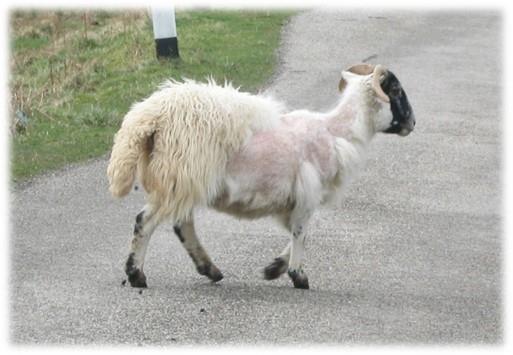A recent study published in Veterinary Parasitology, demonstrated scab mites collected from sheep that apparently hadn’t responded to treatment on farm, were resistant to all three ML compounds; moxidectin, ivermectin and doramectin.
The study also found considerable variation in response suggesting resistance alone wasn’t the only reason affecting their ability to work, with inappropriate treatment application and management the most likely reasons.
Correct application technique and appropriate management are critical factors to ensure successful treatment and eradication of scab and in the protection of the active ingredients against resistance development.
One of the paper’s authors Professor Richard Wall, University of Bristol said: “The lack of susceptibility to MLs was not seen universally and, in some cases, reported lack of response to treatment was likely to have been due improper application of the acaricide or management of sheep after treatment.
“This is an important finding, because inappropriate treatment or inadequate application may result in sub-optimal residues and further hasten selection for resistance.”
Prof Wall added: “The ideal long-term approach to scab management on a farm would be to eliminate all mites by appropriate treatment of sheep, for example with OP, and then maintaining scab free stock by applying appropriate biosecurity and quarantine measures.
“However, if ML resistance spreads, which is possible with long-distance sheep movements, greater reliance on OP dip alone will inevitably impose selection pressure on this compound.”
Dipping alternatives
Correct plunge dipping is one of the best ways to remove scab and will remove ML resistant mites, meaning these actives will potentially be successful on the farm in future years. However, for those farmers unable to dip due to inadequate facilities or the cost, then using the correct injectable and only when necessary is important.
Vet Dr Dave Armstrong from Zoetis said: “It’s vital to remember all ML’s are also wormers so ensure their use is necessary and avoid repeat doses in any given year.”
Most ML’s don’t offer persistent protection against scab. That means if you use a non-persistent ML injection, you need to take suitable management steps to avoid re-infestation. All sheep need to be treated on the same day. Post treatment sheep need to be moved to a scab free pasture that hasn’t contained sheep for at least three weeks, this is because the scab mites can live in the environment for up to 17 days and you need to avoid contact with other potentially infested sheep.
Dr Armstrong added: “Where this isn’t possible, using either CYDECTIN® 1% or CYDECTIN 2% is an option as both offer persistent protection for 28 days and 60 days respectively, meaning sheep are protected regardless of whether sheep are moved to previously grazed fields or not. However, all treatments should be discussed with your medicines provider.”
Sheep scab incidence
Sheep scab is endemic within the UK with figures suggesting between 7-10,0002 clinical cases a year at an estimated cost of £12-183 a ewe. It is caused by an infection with the mite Psoroptes ovis, but it can take weeks or even months before clinical signs are obvious, so farmers often cannot tell just by looking at a sheep whether it is in the early stages of infection or not.
How to prevent scab from entering your flock
For farmers buying in sheep there are three things to prevent scab from entering your flock:
-
Always assume the sheep have scab
-
Keep animals in quarantine (isolated) for at least 3-4 weeks
-
Treat or test the quarantined animals. This can involve:
a. Blood test all the animals in quarantine after two weeks to see whether they have been in contact with sheep scab. This is the ideal first step as it can avoid unnecessary treatment. b. Injection with Macrocyclic Lactones (ML) c. Plunge dip using an organophosphate (OP) (diazinon) dip. -
Have a robust plan for control of sheep scab that you have discussed with your animal health advisor




